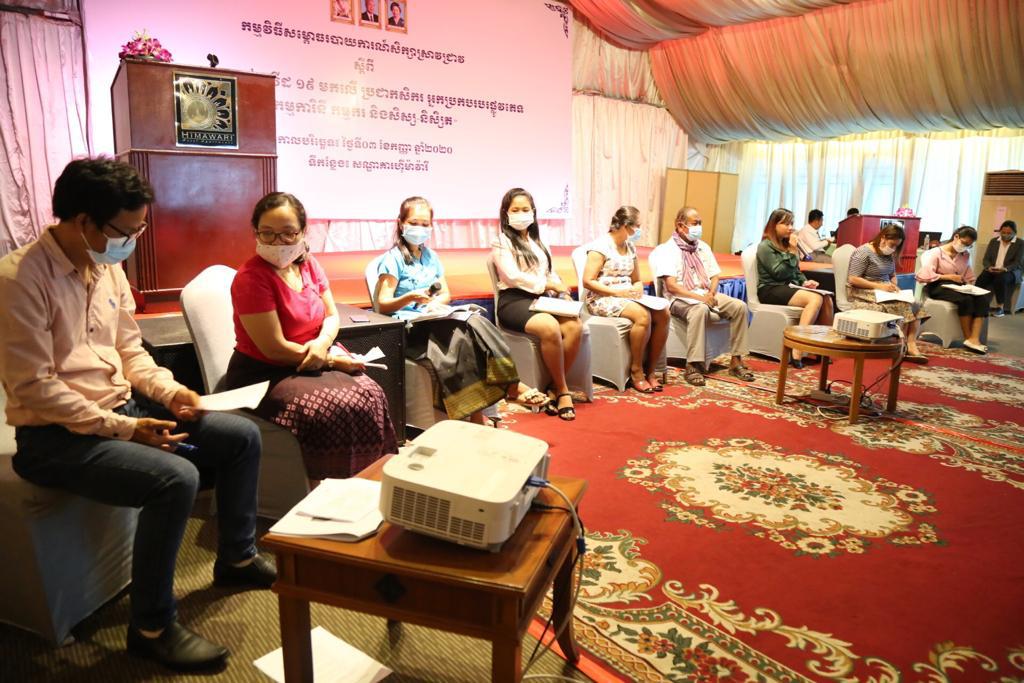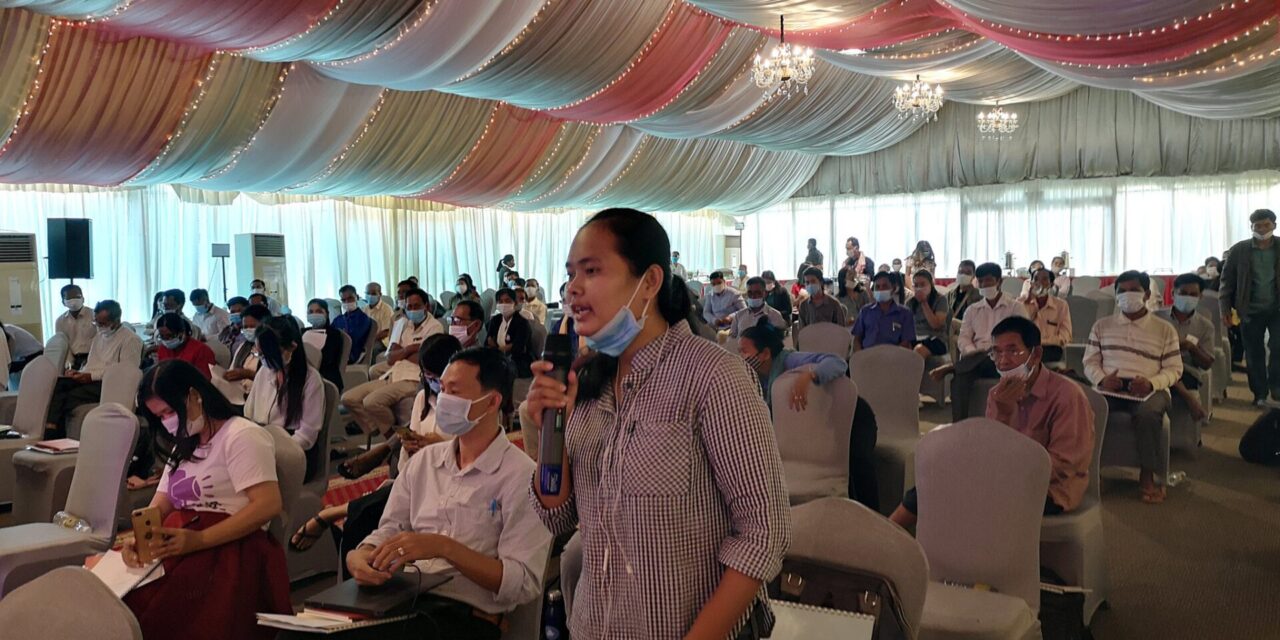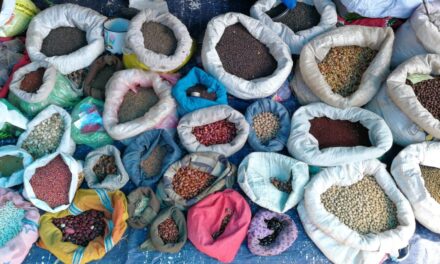The attendees included representatives from regional and international NGOs, government ministries, foreign embassies, schools, and local communities. All were required to wear facemasks throughout the event.
The report seeks to call attention to the effects of the COVID-19 pandemic on vulnerable and marginalized communities in Cambodia. While the country has reported fewer than 300 cases and no deaths from the coronavirus, disruptions to global trade and tourism have forced many small and local businesses to close. Mass cancellations of orders within the important garment and footwear industries forced hundreds of factories to suspend operations and over 100,000 workers to lose their jobs.
Mass layoffs and the return of tens of thousands of Cambodian migrant workers from Thailand placed additional burdens on already struggling families. Water shortages and dwindling fish populations in rural areas exacerbated indebtedness among farming and fishing communities and disrupted access to food.
School closures, followed by the launch of take-home and online coursework by the Ministry of Education, Youth, and Sports, excluded poor and rural students from education opportunities.

Presenters take questions from the audience.
“59.8 percent of 104 farmers surveyed did not have enough food to eat during the COVID-19 pandemic,” said Sophy, a farmer from Kampong Chhnang province, citing the report’s findings on small and medium-scale farmers.
The report also found that 72.8 percent of farmers were already in debt before the pandemic, while 29.2 percent took out loans from microfinance institutions (MFIs) and commercial banks during the pandemic. Many borrowed from one institution in order to repay another.
Around 50 percent of farmers reported difficulties repaying loans, and 60 percent reported cases of land-grabbing.
Among garment workers, 57.3 percent experienced contract suspensions, and 13.3 percent experienced layoffs. Many reported that the US$70 government subsidy for laid-off garment workers was inadequate and demanded policies to ensure social protection for workers.
“The garment industry has been heavily impacted by the pandemic. A lot of importers have suspended their orders. Many workers face worse working conditions. Employers have been uncooperative,” said Touch Sophourt of WIC.
Among the 130 sex workers surveyed, 50 percent reported health problems. 95% reported feeling extremely scared.
“Many of the entertainment and sex workers who come to the city from the provinces do not have necessary documents to access social protection and government services and support,” said Chanthou of Women Network for Unity.
One student quoted in the report said: “My parents’ incomes are declining because their employer in South Korea suspended them. It’s hard for them to pay the rent there. They want me to finish high school, but I don’t want to put burden on them. I don’t know if I can continue my study.”
“There is a huge gap between the rich and the poor. There is also the issue of quality of online education and the expenses incurred in e-learning. A lot of families whose breadwinners have lost their jobs are struggling to pay for school,” said Leav Lina of SACD.
Most students surveyed did not understand what e-learning is and had little or no previous experience with e-learning.
The report recommends that the Cambodia government provide free vaccines and adequate healthcare services for all citizens; put a price cap on essential goods such as water, food, and electricity; provide direct cash handouts and financial support to rural farmers; and provide immediate debt relief to farmers so they are not forced to give up their lands. It also recommends that the National Bank of Cambodia advise MFIs to suspend loan repayments.
In her closing remarks, Oum Samorl, a farmer from Pailin province, said: “Thank you to the ministries who have joined this forum and all the national and international NGOs who have come to express solidarity. We hope the research study’s recommendations will get responses.”
The report is available in Khmer language. An English translation is forthcoming.






![[IN PHOTOS] In Defense of Human Rights and Dignity Movement (iDEFEND) Mobilization on the fourth State of the Nation Address (SONA) of Ferdinand Marcos, Jr.](https://focusweb.org/wp-content/uploads/2025/07/1-150x150.jpg)

